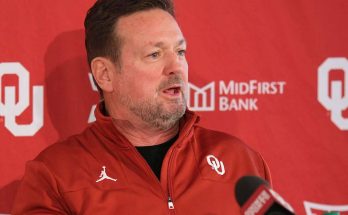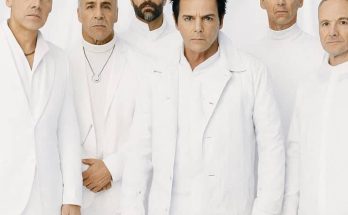J.J. McCarthy, a fresh face under the bright lights of Monday Night Football, arrived in Soldier Field for his very first NFL start looking every bit the rookie. Fans and pundits alike were bracing for a baptism of fire—what they’d get instead was a firestorm of heroics. The game began with McCarthy making a costly mistake: a pick‑six that handed the Bears a 17‑6 lead in the third quarter. The momentum swung decisively into Chicago’s favor, and many might have expected the young quarterback’s composure to crumble. Instead, it marked the launchpad of an improbable, jaw‑dropping comeback for the ages.
In that third quarter, the Vikings looked like lost souls—not because McCarthy lacked ability, but because of the sheer pressure and weight of expectations. The interception return for a touchdown stung, not just in points, but in psyche. It was the kind of moment that defines careers; some crack under the glare, others, like McCarthy, used it as fuel. But it was what happened next that will be talked about long after the final whistle.
The fourth quarter turned into his stage. McCarthy methodically erased the deficit with unshakeable poise. He threaded a 13‑yard touchdown pass to Justin Jefferson, striking with precision and calm that belied his rookie status. He followed that up with a 27‑yard touchdown connection to Aaron Jones, carving through Chicago’s defense like a seasoned veteran. But perhaps the most dramatic moment came under the final minutes, when on third‑and‑1 from the Chicago 14-yard‑line, McCarthy faked a handoff and electrified the crowd with a 14‑yard sprint to the pylon, searing a 27‑17 lead into the scoreboard.
By that point, McCarthy had authored something no player before him had achieved: three touchdowns in the fourth quarter of his NFL debut. It’s a feat worthy of legendary company. Indeed, he became just the second quarterback in 45 years to overcome a double‑digit fourth‑quarter deficit in a debut—joining Steve Young in that exclusive fraternity.
But even with a ten‑point buffer, the intensity didn’t fade. The Bears, refusing to go quietly, engineered a rapid strike to bring the score to 27‑24. With 51 seconds elapsed, Chicago had revived hope. Yet, Minneapolis’ defense, galvanized by McCarthy’s surge, responded with urgency, delivering six consecutive third‑down stops that suffocated the Bears’ momentum. Special teams aided the cause—thanks in part to a deflected punt that turned the tide even further toward the Vikings.
This was a team effort, sure, but at the epicenter was McCarthy. His final stat line told a neat, disciplined story: 13 completions on 20 attempts, 143 passing yards, two passing touchdowns, one rushing touchdown, and one interception. Yet the numbers don’t fully capture the narrative arc—his redemption, his transformation from crisis to commander
Behind the scenes, the shift began at halftime. Coach Kevin O’Connell, sensing the churning potential beneath the rookie’s nerves, delivered a simple yet powerful message: “You are going to bring us back to win this game.” Whether through divine thread or the coach’s faith, McCarthy absorbed that message—and delivered with massive belief.
Beyond the plays, McCarthy revealed there was a deeper, psychological ritual. He explained that he channels an “alter‑ego” by applying a bit of symbolic “warpaint” before games—a mental switch that activates his fierce, competitive self. This psychological layer perhaps separated the McCarthy of Q1‑3 from the McCarthy who seized control when it mattered most
Meanwhile, amid all the grit and glory, the narrative of NFL rookie quarterbacks battling adversity was in full swing. Caleb Williams, the Bears’ rookie phenom drafted ahead of McCarthy, had produced a promising performance with two touchdowns, 210 passing yards, and a rushing score—but ultimately fell victim to penalties, execution lapses, and mismanagement that mirrored Chicago’s collapse. One missed deep throw (on a wide-open DJ Moore in the final minutes) stood out as a figurative dagger. The mistakes stacked up, and McCarthy’s composed late assault capitalized mercilessly.
From the fans’ perspective, it was more than a win—it was narrative gold. Social media exploded with Vikings supporters applauding McCarthy’s ice‑cold composure. Others marveled at his immediate impact—a veteran’s brain inside a rookie’s body. Some asked, half-joking, whether his warpaint was magic. All were reckoning with the same realization: Minnesota may have found a backbone at quarterback.
This win wasn’t just about erasing a deficit or marking a season opener. It was a declaration—McCarthy, returning from a season-ending knee injury that forced him to miss all of 2024, had arrived. The Vikings’ quarterback room, once fragile, now had a spark. Leaders were made in the fray, and McCarthy stepped out of exile—no longer the injured promise, but the present-day leader.
As the clock ticked down and the final kneel sealed the 27‑24 victory, the Vikings had not just won—they had been reborn. For Minnesota, it wasn’t just game one; it was a trope-reversing tale. The rookie quarterback who began his night with a crushing pick‑six ended it as a legend in the making: the heroic architect of the comeback. His raw talent, emotional resilience, and unflappable leadership combined to produce a performance that, in one fell swoop, could reshape expectations for what this team—and this player—can become.
So let’s savor this: J.J. McCarthy, in his very first NFL start, survived a pick‑six and turned a 17‑6 nightmare into a 27‑24 fairy-tale win. He threw two touchdowns, ran one in, activated his alter‑ego, embodied his coach’s belief, and saved the Vikings from a loss that would have stung more than most. That’s not just a comeback—that’s a statement.



